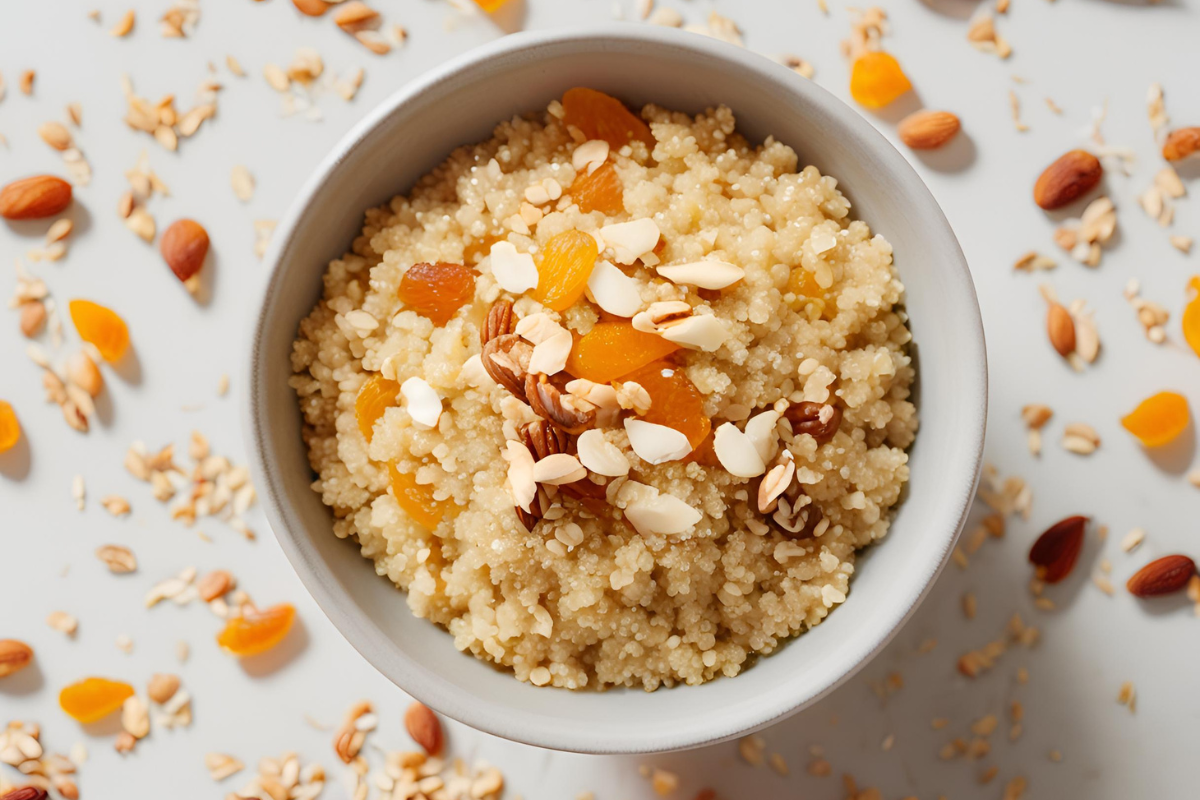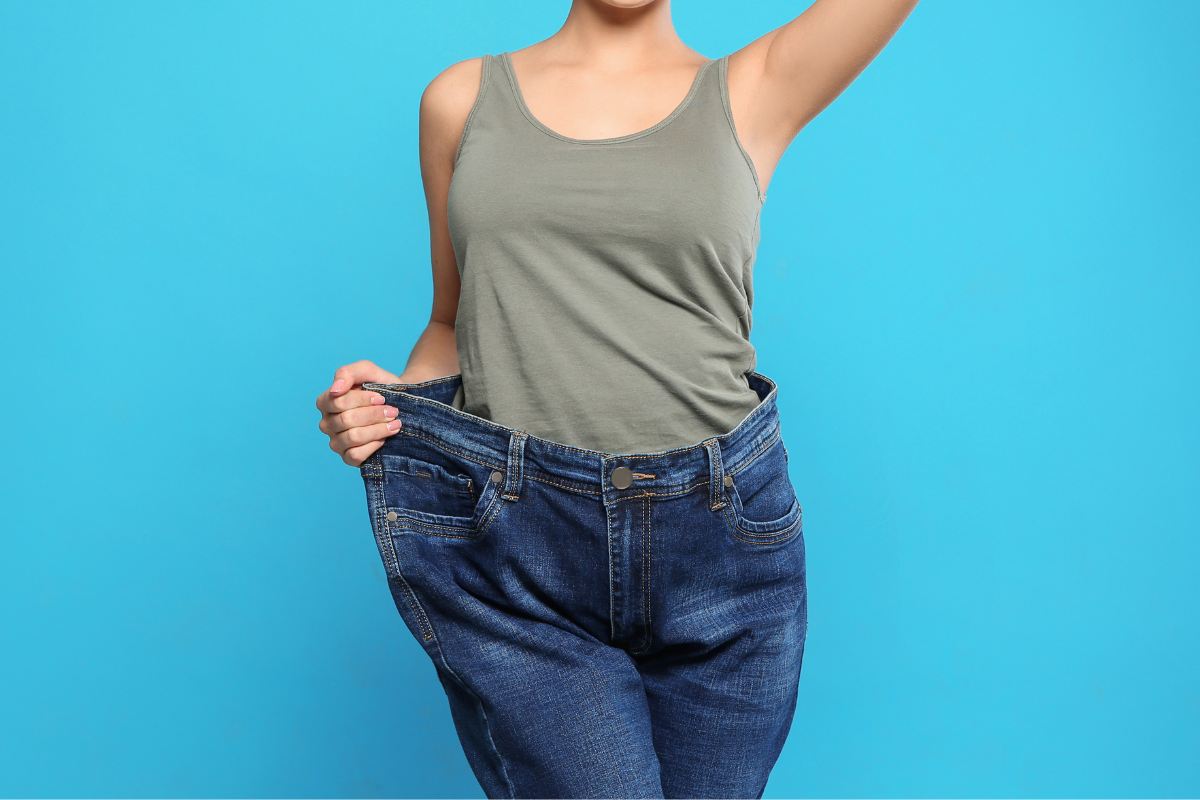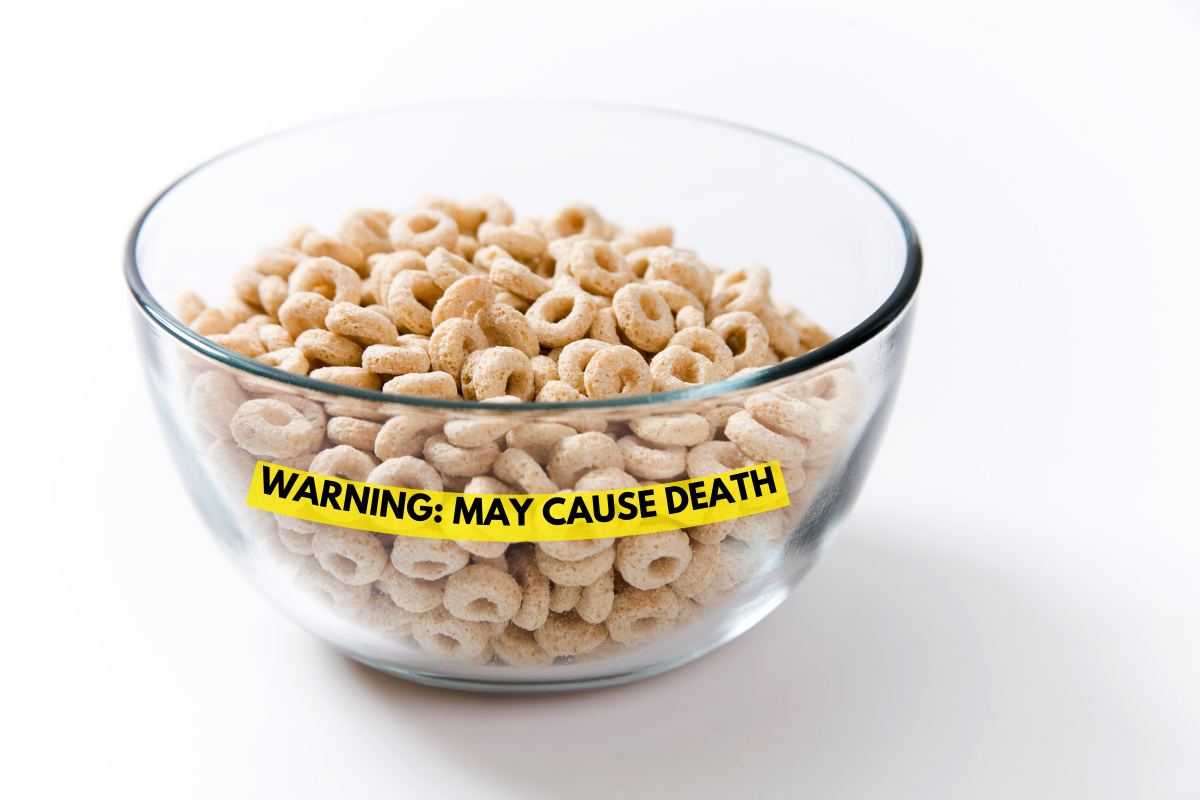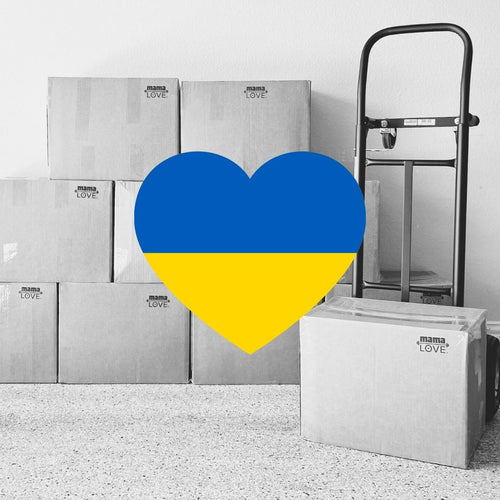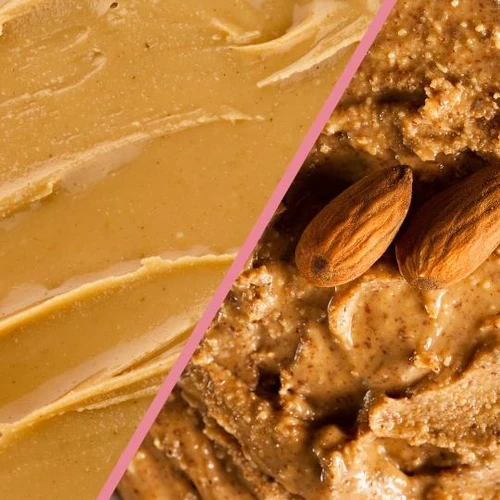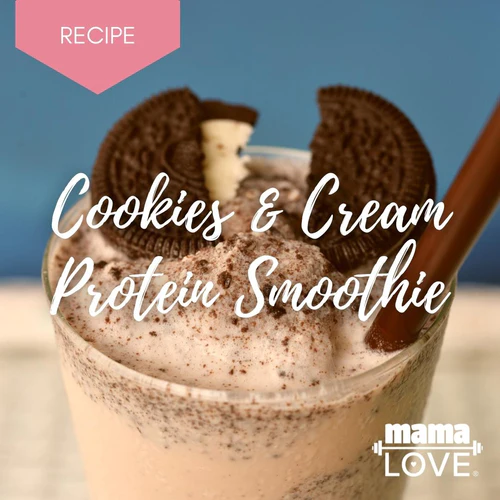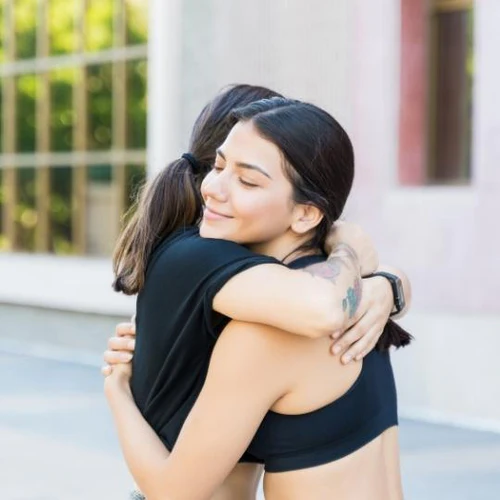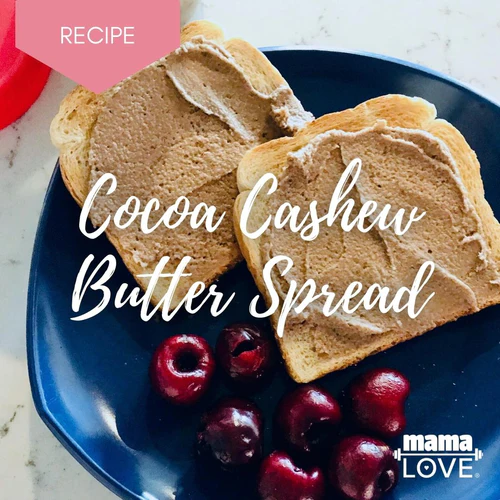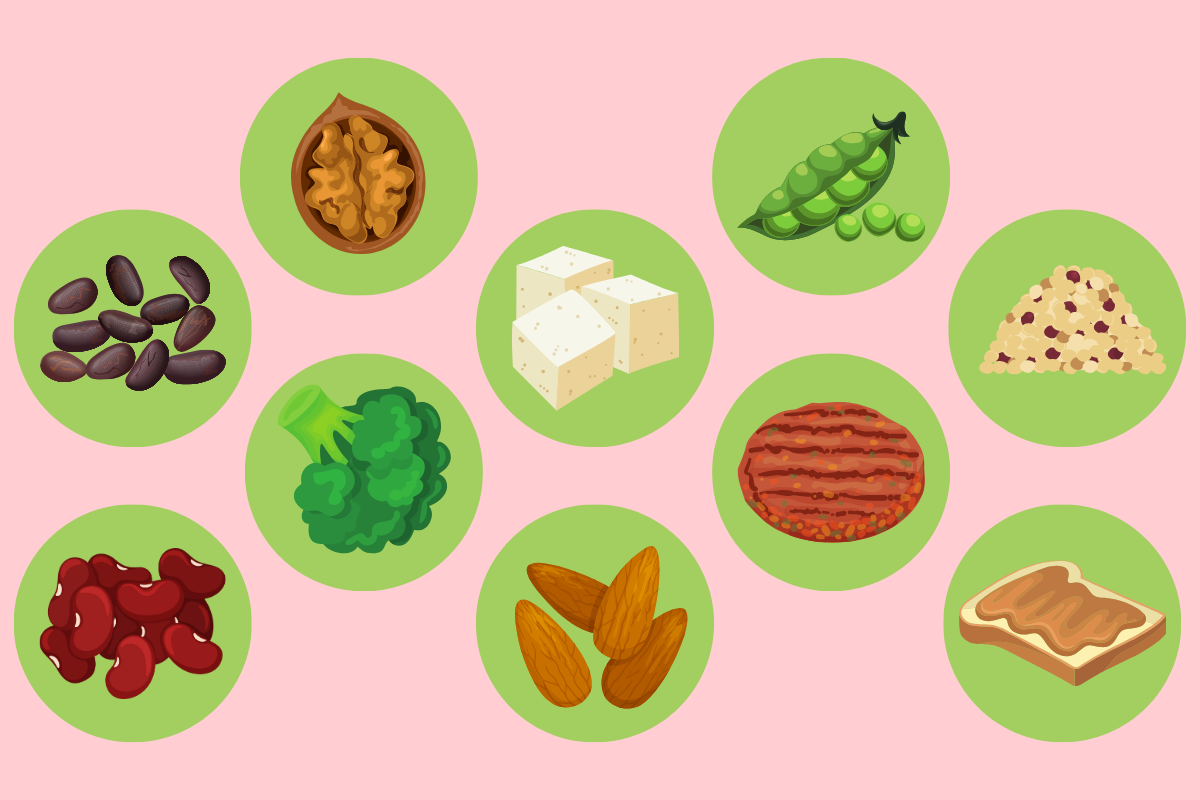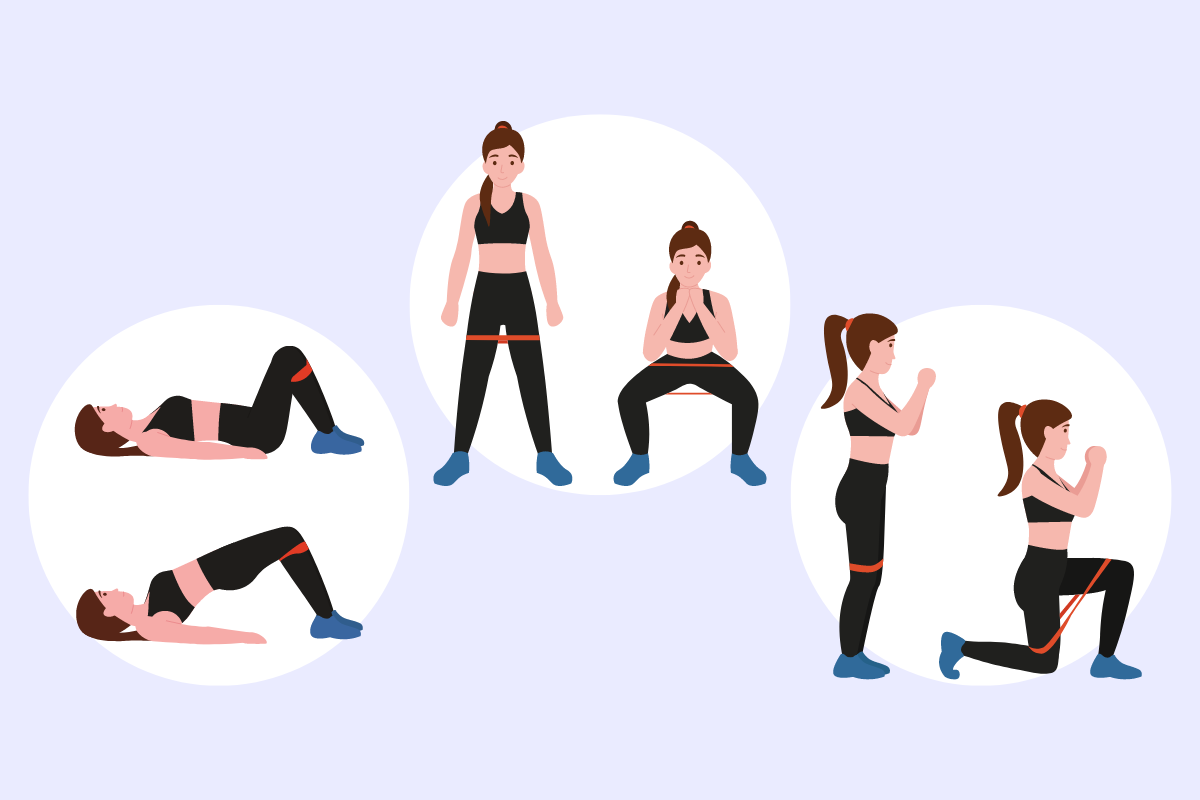
At the start of the pandemic last year, I was hiding (er, I mean… working) in the laundry room with a pile of clean bedsheets. And I remembered a phrase that often shows up in memes: Parenting is like folding a fitted sheet—no one really knows how to do it. Most of the moms I know would agree with that statement. Many of us are just doing the best we can to get by, never sure if the corners are matching up.
In that moment, I was determined to figure out how to get a nice, tidy pile of folded sheets. It took a lot of practice, a ton of patience, and time. And I discovered a little trick that makes all the difference. I didn’t get it on the first try, and sometimes I still end up with sloppy sheets—especially when I’m in a hurry, but I can do it.
That parenting metaphor continues holds true. Being the best mom takes practice, patience, and time. And there is a trick to it. When you prioritize yourself, you get better—especially if you spend that time moving your body. Need some convincing? Here’s how exercising can make you a better mom.
Exercise Puts You in a Better Mood
There are a bunch of hormones swirling around inside your body during the postpartum stage, which explains why lots of moms feel blue shortly after delivering. To help counteract the effect of those downer hormones, and to manage negative feelings, doctors and other healthcare professionals often recommend physical activity. (Be sure to check in with your ob-gyn first.)
Exercise has long been connected to the production of mood-lifting endorphins. And research shows working out can reduce a mama’s risk of postpartum depression, relieve anxiety, and improve her outlook on life (1, 2).
And it’s not just brand-new moms that benefit from the positive mental health effects of a sweat session. All mothers can feel happier and more together when they make exercise a daily thing.
“Working out keeps my mental health in check,” says Britney Crosson, a busy mom, business owner, and host of the Social Sunshine Podcast. Crosson speaks openly about her experience with anxiety on social media, and she finds relief through indoor cycling and running with Peloton. “With a clear mind, I’m happier and I can be a much better mom to my two kiddos,” she says.
Crosson’s opinion is backed by science. A review of studies published in the Journal of Happiness Studies (yep, people get paid to research happiness!) shows even just 10 minutes of exercise can put you in a more cheerful mood. And people who are physically active for 30 minutes a day, are 30% more likely to report feeling happy (3).
Exercise Can Improve Your Patience
As if feeling happier isn’t enough to get you to exercise regularly, working out can also help you hone your patience muscle. In fact, research on mice has linked an increase in serotonin, one of the feel-good hormones produced during exercise, to being more patient (4).
Comparing rodents to humans isn’t exactly apples to apples, but scientists believe there is a correlation between elevated serotonin levels and being patient in people, too. And even without much scientific evidence, tons of moms report having more patience after working out.
Allyson Howard, a wine consultant and mom to two under the age of five, says feeling calm and being able to handle daily stress without getting angry is the push she needs to be physically active every day. “When I make time to practice yoga, I’m able to mentally reset and be a more patient mother,” she says.
Exercise Bolsters Your Immune System
Your immune system is constantly at the ready, waiting to battle illness-causing bacteria, viruses, and other microbes at a moment’s notice. But not getting enough sleep, constant stress, eating poorly, and other lifestyle shortfalls commonly connected to being a mom, can make it harder for your body to fight off infections.
You may not be able to overhaul your life, but you can improve your immunity by working out. Studies show even one session of moderate exercise—anything from a brisk stroller walk, to a dance party with the kids, to a solo run, can reduce inflammation in your body and support the production of immune cells (5). Even more encouraging given the current pandemic, that same research also shows a single sweat session can improve the effectiveness of vaccines in people with weakened immune systems.
Last I checked, a healthy mom is a better mom. Mamas don’t get to take sick leave, so fewer days feeling under-the-weather means fewer days struggling to get through the routine with a runny nose, cough, fever, or worse.
Exercise Gives You More Energy
It might seem counter intuitive, but it’s true: Pushing yourself harder through a heavy lifting set or a tough climb on the bike can actually increase your energy. Want proof? According to population studies conducted over the span of 60 years, people who exercise regularly are less likely to feel tired or experience low energy than those who aren’t physically active (6).
Research even shows exercise, especially the aerobic kind that gets your heart thumping, might be the prescription for fatigue. When scientists asked healthy people, who self-identified as chronically tired, to exercise three times a week for six weeks, the participants reported having more energy and feeling less fatigued after their sweat sessions (7).
Ready for the craziest of crazy exercise-gives-you-energy proof? Researchers at the University of Georgia find climbing stairs can be more effective than caffeine (8). (I know! I spit out my coffee when I heard that, too.) The study authors asked sleep-deprived, college-aged women to either walk up and down stairs for ten minutes or consume 50mg of caffeine, before completing verbal and computer-based tiredness tests. A third group of participants didn’t exercise or get caffeine before the tests. “We found, in both the caffeine and the placebo conditions, that there was not much change in how they felt,” Patrick J. O’Connor, one of the study authors and a kinesiology professor at UGA, said in a press release. “But with exercise they did feel more energetic and vigorous.”
That may not be enough evidence to give up your morning cup of coffee, but it does give a daily exercise habit more cache. Mandy Florence, a blogger, mom to a 24-year-old, and bonus mom to an eight-year-old, couldn’t agree more. “I thought my little kid days were behind me,” says Florence, “so I really rely on my daily runs to give me more energy to keep up!”
Much like folding a fitted sheet, when it comes to parenthood you can google your way through it or just figure it out as you go. You are a great mom simply by showing up and being you. Still, it’s nice to know it only takes one workout to be even better.
Sources:
- Poyatos‐León, R, García‐Hermoso, A, al.“Effects of exercise‐based interventions on postpartum depression: A meta‐analysis of randomized controlled trials.” Birth. 2017; 44: 200‐ 208. DOI: 10.1111/birt.12294
- Anderson, Elizabeth, and Geetha Shivakumar. “Effects of exercise and physical activity on anxiety.” Frontiers in psychiatry 4 27. 23 Apr. 2013, DOI:10.3389/fpsyt.2013.00027
- Zhang, Z., Chen, W. A Systematic “Review of the Relationship Between Physical Activity and Happiness.” Journal of Happiness Studies20, 1305–1322 (2019). DOI: 10.1007/s10902-018-9976-0
- Miyazaki, K., Miyazaki, K.W., Yamanaka, A. et al.“Reward probability and timing uncertainty alter the effect of dorsal raphe serotonin neurons on patience.” Nature Communications 9, 2048 (2018). DOI: 10.1038/s41467-018-04496-y
- Simpson RJ, Kunz H, Agha N, Graff R. “Exercise and the Regulation of Immune Functions.” Progress in Molecular Biology and Translational Science. 2015; 135: 355-80. DOI: 10.1016/bs.pmbts.2015.08.001.
- Puetz, Timothy W. “Physical activity and feelings of energy and fatigue: epidemiological evidence.” Sports medicine (Auckland, N.Z.) 36,9 (2006): 767-80. DOI:10.2165/00007256-200636090-00004
- Puetz, Timothy W et al. “A randomized controlled trial of the effect of aerobic exercise training on feelings of energy and fatigue in sedentary young adults with persistent fatigue.” Psychotherapy and psychosomatics 77,3 (2008): 167-74. DOI:10.1159/000116610
- Randolph, Derek D, and Patrick J O’Connor. “Stair walking is more energizing than low dose caffeine in sleep deprived young women.” Physiology & behavior 174 (2017): 128-135. DOI:10.1016/j.physbeh.2017.03.013

